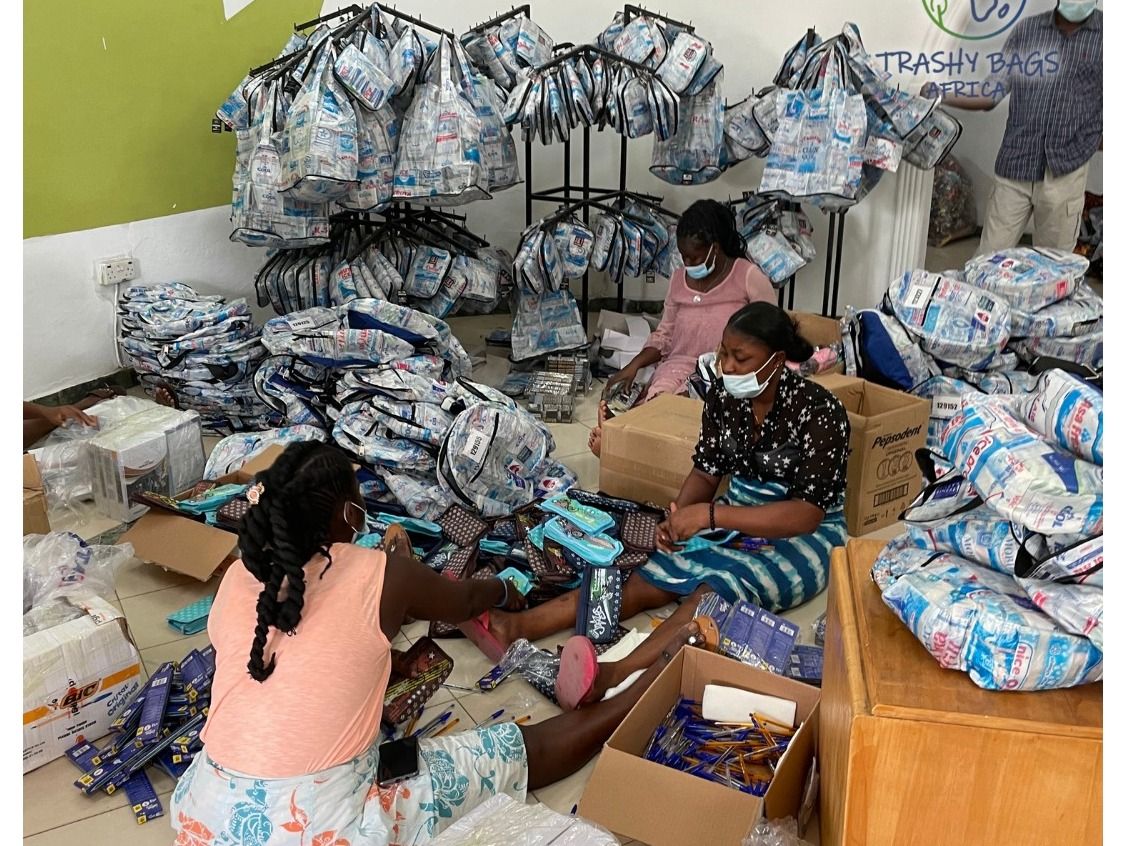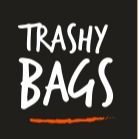
Added: Mar 04, 2021
Last edited: Mar 08, 2023
Trashy Bags makes backpacks and bags from reclaimed drinking water and ice-cream sachets. These sachets are made from high-density polyethylene (HDPE), which is recyclable but non-biodegradable. Trashy Bags washes the sachets and stitches them together to form a whole piece of fabric. Also, they purchase fabric off-cuts from designers to be stitched together and used for their designs instead of buying new fabrics.
It is estimated that in Ghana, waste produced from plastic packaging amounts to 270 tonnes per day; most of it non-biodegradable. That adds up to over 22,000 tons of plastic in one year. This figure has risen in just ten years by about 70%. Despite this rise, it is estimated that only 2% of plastic waste is recycled. What happens to the remaining 98%? Whatever is not disposed of by the local authorities ends up on the streets of Ghana and other West African countries, which are littered with rubbish; one of the most common items being plastic drinking water and ice-cream sachets that have been discarded after use. This is choking the drains causing frequent flooding and increasing the risk of disease.
Trashy Bags produces bags from reclaimed plastic drinking water and ice-cream sachets. The sachets are not reprocessed in any way apart from cleaning. This has the benefit that very little energy is used in order to add value to material that would otherwise be dumped or burned. In addition, by incorporating the original and complete sachets into its products, it demonstrates in a very visible way that it is possible to increase the life span of plastic packaging and so help to tackle the very serious problem of environmental pollution in Africa and elsewhere.




Footprints Africa
switch2cetextile
